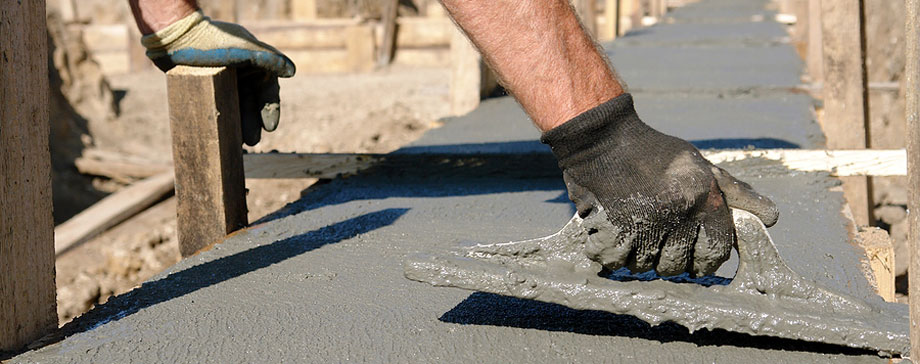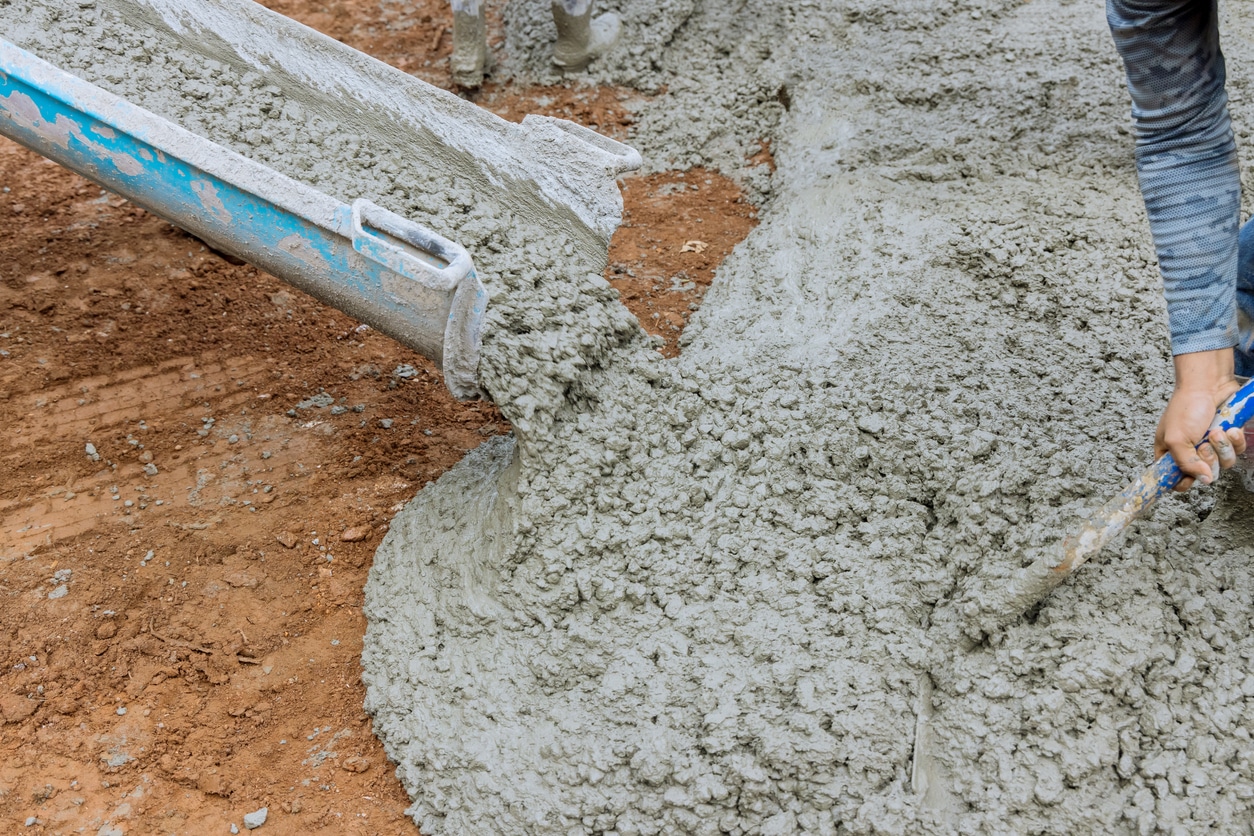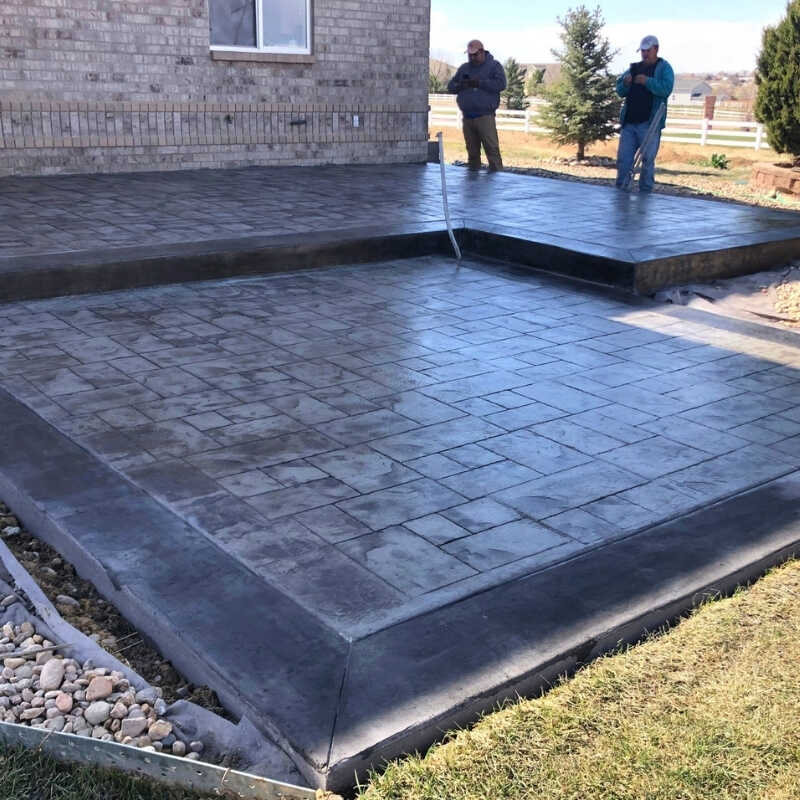
Understanding the Vital Duty of a Concrete Specialist in Modern Construction and Design
Concrete specialists are vital to the building and construction and style sectors. Their knowledge assurances that frameworks are not just durable yet likewise aesthetically pleasing. They take part in different obligations, from project planning to high quality control, and team up with engineers and engineers. With progressing modern technologies and trends, their duty is much more essential than ever before. Understanding their effect can disclose insights into modern construction techniques and the future of building layout.
The Value of Concrete in Construction
Although various products are employed in building, concrete continues to be a cornerstone of modern-day structure methods as a result of its strength, longevity, and adaptability. This composite material, made from cement, water, and accumulations, can stand up to considerable stress and anxiety and is immune to fire, climate, and pests, making it suitable for diverse applications. Concrete's adaptability allows it to be molded right into numerous forms and sizes, helping with ingenious architectural layouts.
Furthermore, its thermal mass buildings add to energy efficiency, aiding to manage indoor temperatures. The widespread accessibility of raw products and the reasonably inexpensive of concrete also enhance its charm for large-scale tasks, from commercial structures to framework like roads and bridges. As urbanization proceeds to rise, the demand for reliable and sustainable structure materials solidifies concrete's vital duty in building, making it a basic selection for contractors and architects going for long life and resilience in their jobs.
Key Duties of a Concrete Specialist
Concrete specialists play an essential role in the construction procedure, with several essential obligations that guarantee task success. Their jobs include task planning and design, material selection and monitoring, as well as keeping high quality control and guarantee throughout the project lifecycle. Comprehending these duties is important for valuing the service provider's effect on construction results.
Task Planning and Style
When starting on a building and construction task, efficient project planning and layout play a necessary role in a concrete specialist's duties. The contractor has to team up closely with designers, clients, and designers to recognize the job's specifications and objectives. This involves reviewing website conditions, examining layout needs, and figuring out the scope of work. A concrete professional is likewise in charge of establishing budgets and timelines, making certain that all phases of the project straighten with overall objectives. Additionally, they should prepare for prospective challenges and devise solutions to maintain project effectiveness. By diligently preparing and designing each facet of the concrete work, the service provider establishes the foundation for effective execution, guaranteeing architectural integrity and adherence to safety criteria throughout the construction procedure.
Product Choice and Administration
Effective product choice and management are vital responsibilities for a concrete service provider, as these decisions directly influence the quality and durability of the final framework. Concrete specialists must evaluate numerous products, including accumulations, admixtures, and support types, to assure they satisfy task specs and ecological problems. They should consider aspects such as resistance, stamina, and workability to weathering. Furthermore, taking care of the supply chain is essential, as prompt distribution of products can extremely influence project timelines. Service providers need to keep partnerships with vendors to protect high-grade resources while also keeping an eye on supply degrees to stay clear of excesses or shortages. Ultimately, this cautious option and monitoring of materials add to the overall success of building and construction projects and the durability of the structures constructed.
Quality Assurance and Assurance
Quality assurance and guarantee are critical in the building and construction industry, especially for concrete specialists entrusted with providing trusted and sturdy frameworks. Concrete service providers have to apply extensive top quality control steps throughout the building and construction process, ensuring that all products satisfy defined criteria and policies (TJ Concrete Contractor). This includes keeping an eye on the blending, putting, and healing procedures to avoid issues and improve architectural honesty. Routine evaluations are important, permitting specialists to determine and fix problems without delay. Additionally, concrete contractors often team up with designers and engineers to assure that the last item straightens with style specifications. By sticking to strict quality control protocols, concrete service providers not only secure the durability of their work however likewise support the depend on of customers and stakeholders in the construction sector
Sorts Of Projects Dealt With by Concrete Professionals
Although concrete specialists are commonly related to large-scale construction jobs, their experience reaches a diverse variety of applications. These specialists are essential to household jobs, such as patio areas, structures, and driveways, ensuring toughness and aesthetic appeal. In industrial construction, they add to the development of floorings, pathways, and structural components that fulfill certain layout and security standards.
Concrete contractors are included in framework jobs, consisting of tunnels, bridges, and roadways, where their abilities ensure architectural honesty and long life. They likewise play a critical role in ornamental concrete applications, such as stamped concrete and sleek surface areas, which improve the aesthetic facet of various spaces. Additionally, their solutions include fix and maintenance job, addressing issues like fracturing or disintegration in existing frameworks. This flexibility underscores the crucial role concrete specialists play in both ornamental and practical facets of contemporary building and layout.
Abilities and Qualifications Called for
Concrete service providers have to have a varied set of skills and qualifications to effectively take care of the series of tasks they undertake. Efficiency in concrete mixing, putting, and completing is essential, as is a strong understanding of numerous types of concrete, consisting of enhanced and ornamental alternatives. Expertise of construction methods, plans, and task administration principles is crucial for effective execution.
Physical endurance and strength are important due to the requiring nature of the work. Service providers should additionally have strong analytic capabilities to address unforeseen obstacles throughout projects. Interaction skills are essential for coordinating with clients, designers, and other tradespeople.
In addition, getting appropriate qualifications can improve a service provider's trustworthiness and broaden their career chances. Continual education in new strategies and materials keeps contractors affordable in a swiftly evolving sector. These qualifications and skills collectively make it possible for concrete specialists to deliver top quality results efficiently and successfully.
The Duty of Concrete Specialists in Safety And Security Conformity
Making certain safety conformity is an essential obligation of concrete service providers, as they navigate the complexities of building sites. These specialists are tasked with sticking to strict safety and security policies and criteria, which are essential for avoiding crashes and making sure the wellness of all website workers. Concrete Contractor Near Me. Concrete specialists must carry out thorough security this post strategies that consist of training employees on appropriate devices usage and security procedures
In addition, they are accountable for checking products and work processes to identify potential dangers. By performing normal safety and security audits and threat assessments, concrete specialists can proactively resolve concerns prior to they rise. Additionally, they work together with other building and construction experts, such as engineers and job managers, to integrate security procedures into the overall project strategy. Eventually, the commitment of concrete service providers to safety compliance not just secures employees yet also enhances job performance and high quality, enhancing their crucial duty in modern-day building and construction.
Trends and Technologies in Concrete Layout
Current advancements in concrete design have actually presented a variety of fads and advancements that focus on sustainability and visual appeals. Lasting concrete solutions, attractive finishing techniques, and smart concrete modern technologies are reshaping the market. These growths not only boost architectural stability however also contribute to ecologically liable building practices.
Sustainable Concrete Solutions
As the building industry significantly prioritizes sustainability, cutting-edge concrete options are emerging to reduce environmental effect while enhancing efficiency. One noticeable fad is making use of recycled materials, such as crushed concrete and industrial byproducts, which not only lowers waste but likewise boosts the concrete's properties. Advancements in admixtures, consisting of fly ash and slag, contribute to lowered carbon discharges during manufacturing. An additional considerable development includes the growth of absorptive concrete, which enables water to flow through and decreases drainage, mitigating flooding and groundwater depletion. Additionally, the surge of carbon capture modern technologies in concrete manufacturing holds promise for additional exhausts reduction. These lasting concrete options exhibit the market's commitment to eco responsible building and construction practices.

Attractive Completing Techniques
A wide variety of ornamental completing techniques have emerged in concrete layout, transforming ordinary surface areas right into aesthetically striking elements. Strategies such as stamping, staining, and brightening enable a variety of aesthetic possibilities, accommodating diverse style preferences. Stamped concrete mimics natural products like rock and block, while tarnishing presents dynamic shades that enhance the surface area's appeal. Polished concrete, known for its smooth surface, adds sophistication to both domestic and business areas. Furthermore, microtopping and overlay systems give innovative options for invigorating existing concrete. These methods not only improve the visual qualities however likewise boost toughness and upkeep. As patterns advance, the combination of attractive surfaces proceeds to play a crucial duty in modern-day construction, weding capability with creative expression.

Smart Concrete Technologies
While traditional concrete remains a staple in construction, the appearance of smart concrete technologies is reinventing the sector by incorporating sophisticated functions that improve performance and sustainability. These advancements include self-healing concrete, which makes use of ingrained microorganisms that trigger upon splitting, and sensor-equipped concrete that keeps an eye on structural wellness in real-time. In addition, piezoelectric and thermochromic concrete can adapt to environmental adjustments and produce electricity, specifically. The implementation of eco-friendly ingredients and recycled products additionally adds to minimizing the carbon impact of concrete manufacturing. As these technologies remain to evolve, they guarantee to improve toughness, reduced maintenance expenses, and promote greener structure practices, making them important for future building and construction jobs. The duty of concrete specialists is significantly substantial in harnessing these improvements.
Frequently Asked Concerns
What Factors Impact Concrete Rates in Construction Projects?
Concrete rates in construction projects is affected by material prices, labor costs, job dimension, location, schedule of resources, and market need. Seasonal aspects and transport prices can likewise considerably impact the general prices structure.
Just How Do Climate Condition Influence Concrete Work?
Climate condition significantly influence concrete work; extreme temperature levels, moisture, and rainfall can impact establishing times, curing processes, and general high quality - Concrete Contractor Near Me. Service providers need to adjust their timetables and techniques to reduce these ecological influences for effective project conclusion
What Is the Normal Timeline for a Concrete Project?
A common concrete project timeline ranges from a couple of days to several weeks. Factors affecting this period consist of task dimension, complexity, climate condition, and healing times, which collectively establish the general conclusion routine.
Can Concrete Specialists Help With Layout Appointments?
Concrete specialists can undoubtedly help with design assessments, offering important understandings on material selection, architectural integrity, and aesthetic choices, guaranteeing that jobs fulfill both functional demands and the customer's vision for the completed item.
What Prevail Misconceptions Regarding Concrete Longevity?
Common mistaken beliefs concerning concrete durability include the belief that it is unsusceptible harm and that all types are equally strong. Actually, variables like mix design, environmental conditions, and maintenance considerably affect concrete's lasting performance.
They also play an Related Site essential role in attractive concrete applications, such as stamped concrete and polished surfaces, which improve the aesthetic element of numerous areas. Efficiency in concrete blending, pouring, and ending up is vital, as is a solid understanding of different kinds of concrete, consisting of reinforced and attractive choices. One noticeable fad is the use of recycled products, such as smashed concrete and industrial by-products, which not just lowers waste however also boosts the concrete's properties. While standard concrete continues to be a staple in construction, the emergence of wise concrete technologies is reinventing the industry by integrating advanced functions that enhance efficiency and sustainability. These advancements consist of self-healing concrete, which makes use of ingrained bacteria that turn on upon splitting, and sensor-equipped concrete that keeps an eye on architectural health content in real-time.